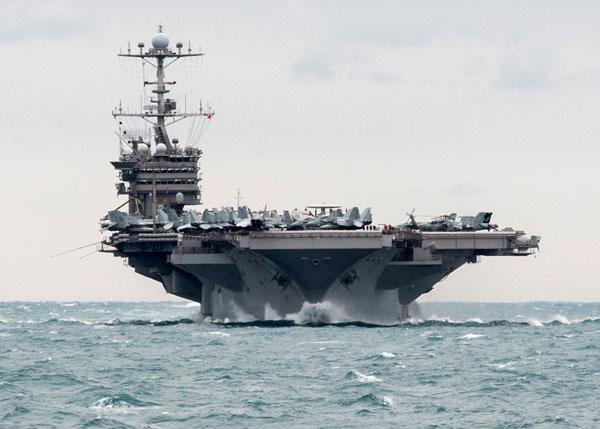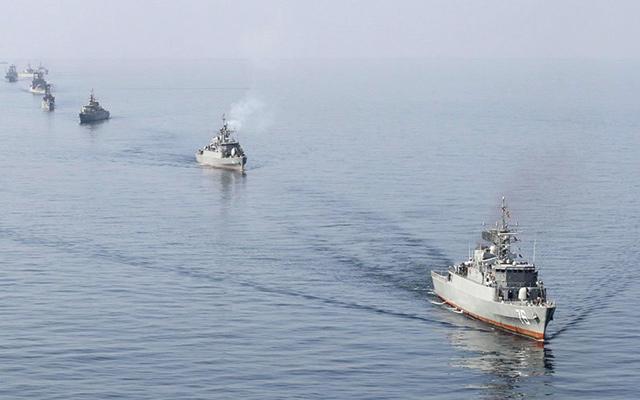OCCUPIED JERUSALEM — Israel on Sunday denounced an Iranian announcement that it was sending naval ships towards the United States as further evidence that loosening sanctions on Tehran was counterproductive.
The move to send warships to the Atlantic was announced by the commander of Iran’s northern naval fleet on Saturday, who described it as a “message”.
The ships “have already started their voyage towards the Atlantic Ocean via the waters near South Africa,” said Admiral Afshin Rezayee Haddad, in remarks quoted by Iran’s semi-official Fars news agency.
Iranian media reported that two ships — a destroyer and a helicopter transport vessel — had been dispatched on January 21.
It was not clear how close the ships would travel towards the US maritime border or when they would arrive.
But Israeli Prime Minister Benjamin Netanyahu said the dispatch of the warships was clear evidence of Iran’s “aggression” and proof it had not moderated its policies following a landmark deal with world powers to roll back its nuclear programme in exchange for sanctions relief.
“The easing of sanctions against Iran by the international community has not caused Iran to moderate its international aggression — the complete opposite has occurred,” Netanyahu told the weekly Cabinet meeting in remarks relayed by his office.
Israel, the region’s sole if undeclared nuclear-armed state, has long viewed Iran’s controversial atomic programme as a threat to its existence and has not ruled out military action to prevent Iran from gaining a nuclear weapon.
Iran has always insisted its nuclear programme is entirely peaceful, and President Hassan Rouhani, a moderate elected last year, has vowed to allay Western concerns about it.
In September 2012, Iran said it was planning to send naval forces to the Atlantic to deploy along US marine borders to counter a beefed up US naval presence in the Persian Gulf, Fars reported, with the navy chief saying the buildup would begin within several years.
In December, the Pentagon said it was not planning to scale back its vast military presence in the Gulf despite the six-month interim nuclear deal.

















